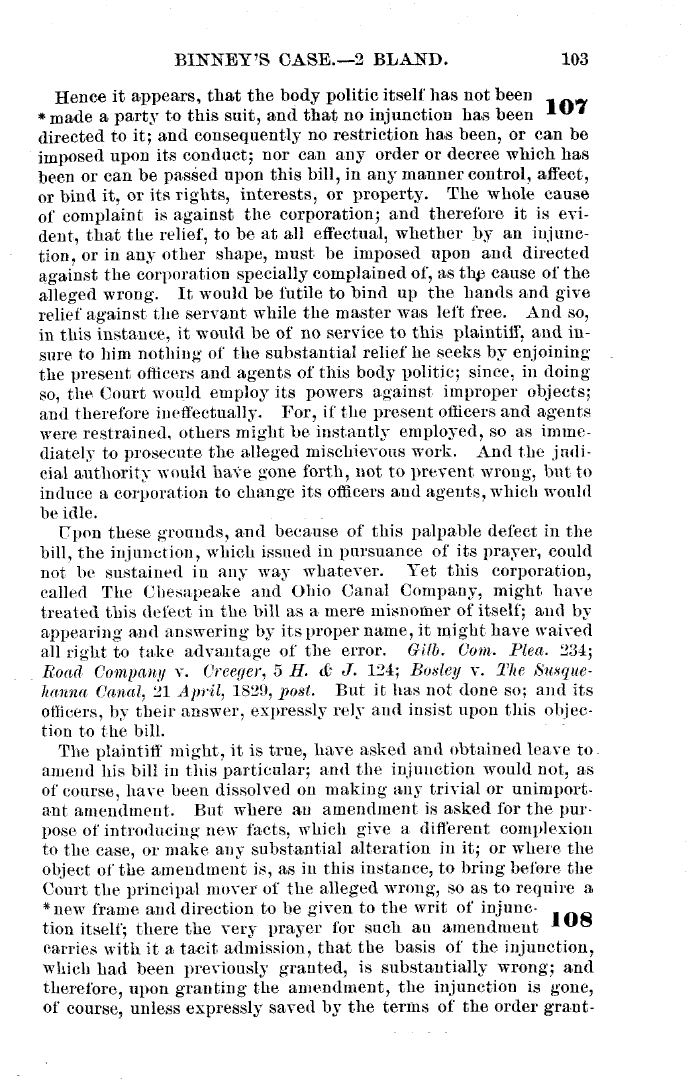|
BINNEY'S CASE.-2 BLAND. 103
Hence it appears, that the body politic itself has not been
* made a part- to this suit, and that no injunction has been 1
directed to it; and consequently no restriction has been, or can be
imposed upon its conduct; nor can any order or decree which has
been or can be passed upon this bill, in any manner control, affect,
or bind it, or its rights, interests, or property. The whole cause
of complaint is against the corporation; and therefore it is evi-
dent, that the relief, to be at all effectual, whether by an injunc-
tion, or in any, other shape, must be imposed upon and directed
against the corporation specially complained of, as thp cause of the
alleged wrong. It would be futile to hind up the hands and give
relief against the servant while tire master was left free. And so,
in this instance, it would be of no service, to this plaintiff, and in-
sure to him nothing of the substantial relief he seeks by enjoining
the present officers and agents of this body politic; since, in doing
so, the Court would employ its powers against improper objects;
and therefore ineffectually. For, if tire present officers and agents
were restrained, others might be instantly employed, so as inirne-
diatelto prosecute the alleged mischievous work. And the jadi-
cia;l authority would haNa gone forth, not to prevent wrong, but to
induce a corporation to change its officers and agents, which would
be idle.
Upon these grounds, and because of this palpable defect in the
bill, the injunction, which issued in pursuance of its prayer, could
not be. sustained in any wad- whatever. Yet tans corporation,
called The Chesapeake and Ohio Canal Company, might have
treated this defect. in the bill as a mere misnomer of itself; and by
appearing and answering by its proper name, it alight have waived
all right to take advantage of the error. Gilb. Coma.. Plea. `_,>3=I;
Road Conipanr> >. Creeger, 5 H. c0 J. I3=I; Bosley v. Tire Sn,~Iue-
hmena Canal, 21 41wil, l82J, posi. But it has not done so; and its
officers, by their answer, expressly rely axed insist upon this objec-
tion to the bill.
The plaintiff' might, it is true, have asked and obtained leave to-
arnend his bill in this particular; and the injunction would not, as
of course, have been dissolved on making- any trivial or unimport-
ant amendment. But where au arnendrnent is asked for the pur-
pose. of introducing new facts, which give a different complexion
to the case, or make, any substantial alteration in it; or where the
object of the amendment is, as in this instance, to bring before. tire
Court tire principal mover of the alleged wrong, so as to require a
* new frame and direction to be given to tire writ of iDjuuc-
tion itself; there the very prayer for such au amendment 1
carries with it a tacit admission, that the basis of the injunction,
which had been previously granted, is substantially wrong; and
therefore, upon granting the amendment, the injunction is gone,
of course, unless expressly saved by tire terms of the order grant-
|

